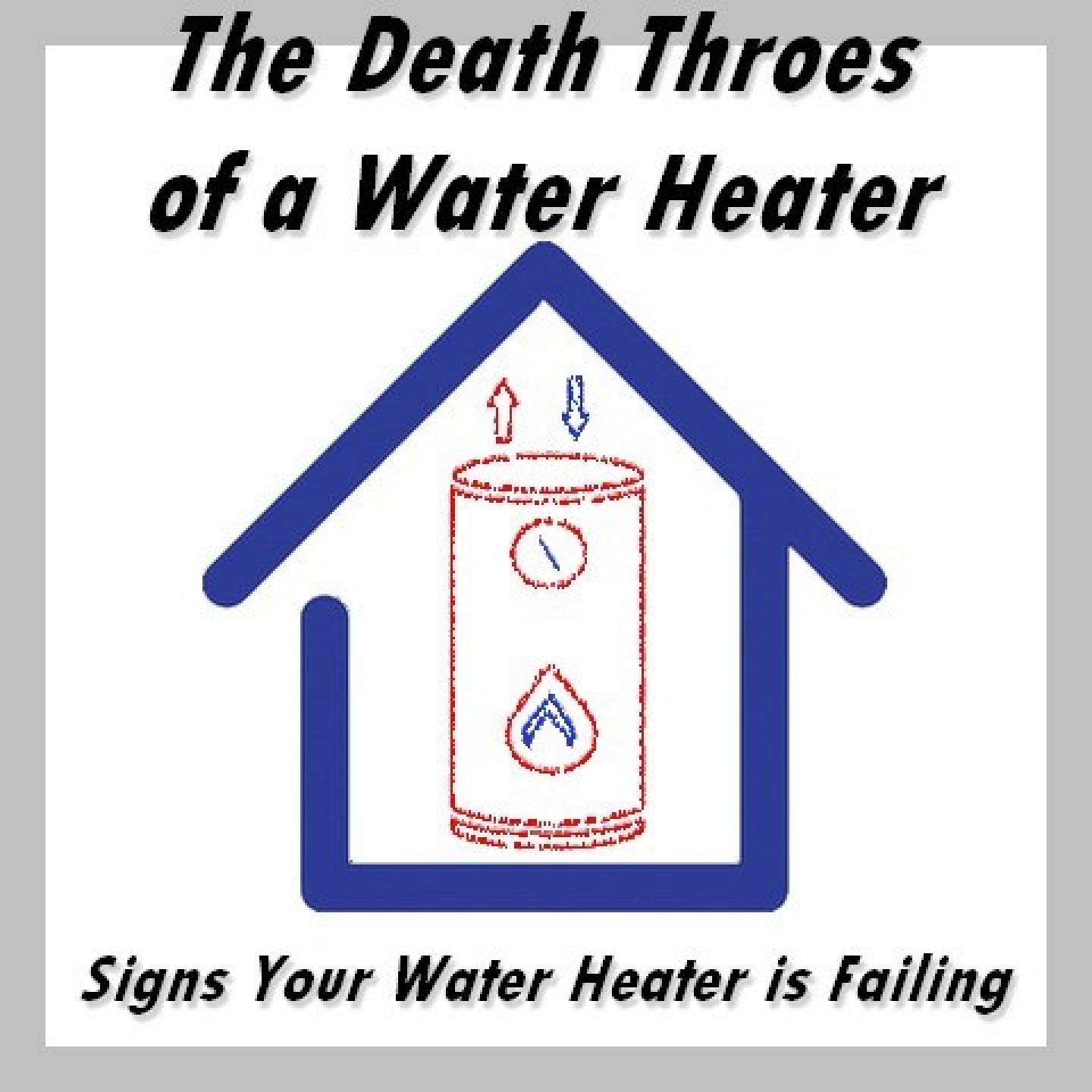Even the best water heaters on the market will fail you eventually. Depending on where you live, the quality of water and the quality of your water conditioning equipment**LINK, your water heater may be headed for doom sooner than it was designed to. Hard and acidic water will lead to corrosion faster, but in the end, all water heaters will face the reality of worn out parts, cracked tanks or corrosion damage.
If you’ve experienced a power outage, you already have a glimpse at how fun and exciting life will be without hot water. It’s a time of adventure and discovery: How will we wash the dishes? How will we wash our pots and pans? How will we wash ourselves?
To prevent this experience, you’ll want to keep an eye out for the signs your water heater is failing.
Age • If you don’t know how old your water heater is, you can verify the date with the serial number label. The month and date may be in an alphanumeric code, but the manufacturer’s website should provide you with the ability to decode it. Manufacturer information should also give you the estimated lifespan of your water heater. The current average (when lumping all models, new and old, in one heap) is 8 to 12 years. Modern replacements have a slightly better average at 12 to 14 years.
Quick to Cool • If you notice that your water temperature isn’t as high as it used to be, or is running out a lot faster than usual, it’s possible your water heater is coated with mineral sediment. This tends to happen after about ten years. A licensed plumber **LINK should inspect your water heater. If you’re lucky – it’s just the heating element in need of replacement.
Rusty Water • The anode rod in your water heater should be checked regularly and replaced when needed. This rod is meant to attract the corrosive elements in your water to the rod in lieu of your tank. If not replaced when needed, corrosive materials will damage the entire water heater, which will inevitably lead to rusty water. Rusty water could also be a sign of pipe damage, but the water heater is a likely villain when hunting for a rusty criminal in your plumbing. If it’s rusted to the point of red water, it’s time to say goodbye now – before it springs a leak.
Water Everywhere • This is usually more a sign that your water has failed than a sign that it is failing, however, depending on the defect that caused it, your water heater may be salvageable.
Snap, Crackle, POP • If your water heater makes loud pops has it heats, sediment has settled and hardened, causing your water heater to work harder. This results in a rapid expansion of the tank, and the loud banging noises that come with it.
If your water heater shows any of these signs, just remember that Jersey Plumbing Service is just a phone call away.


Recent Comments